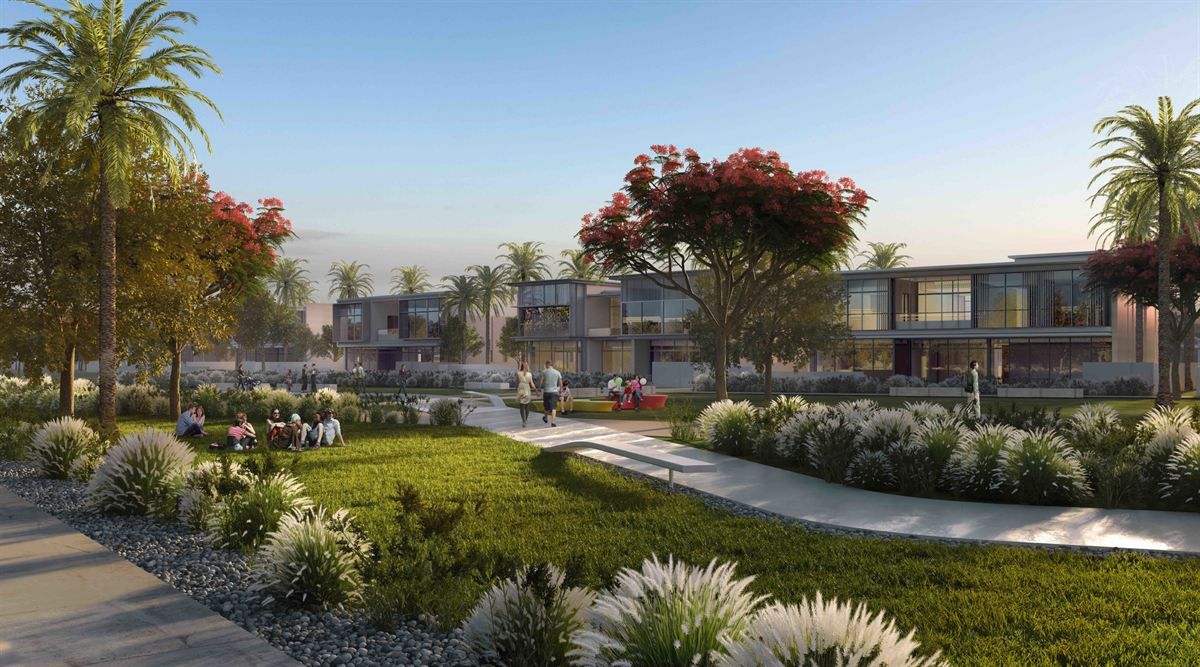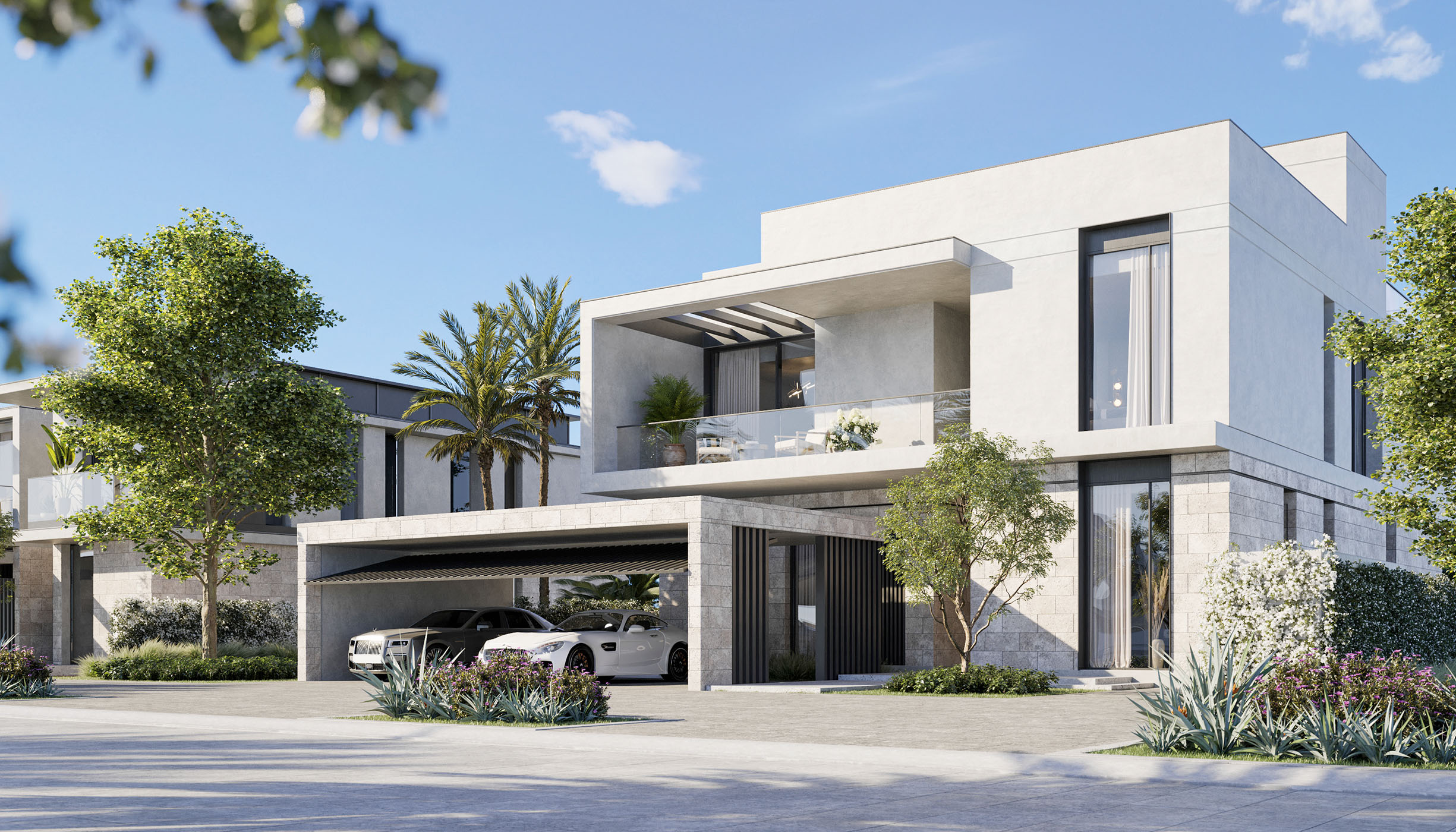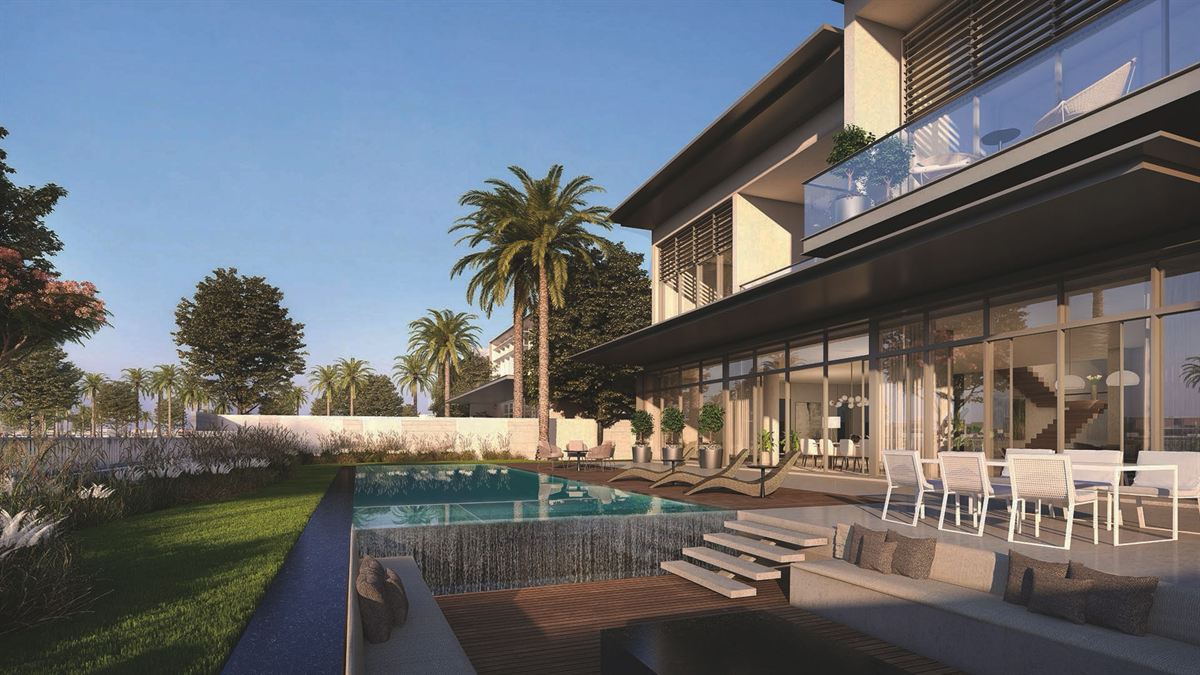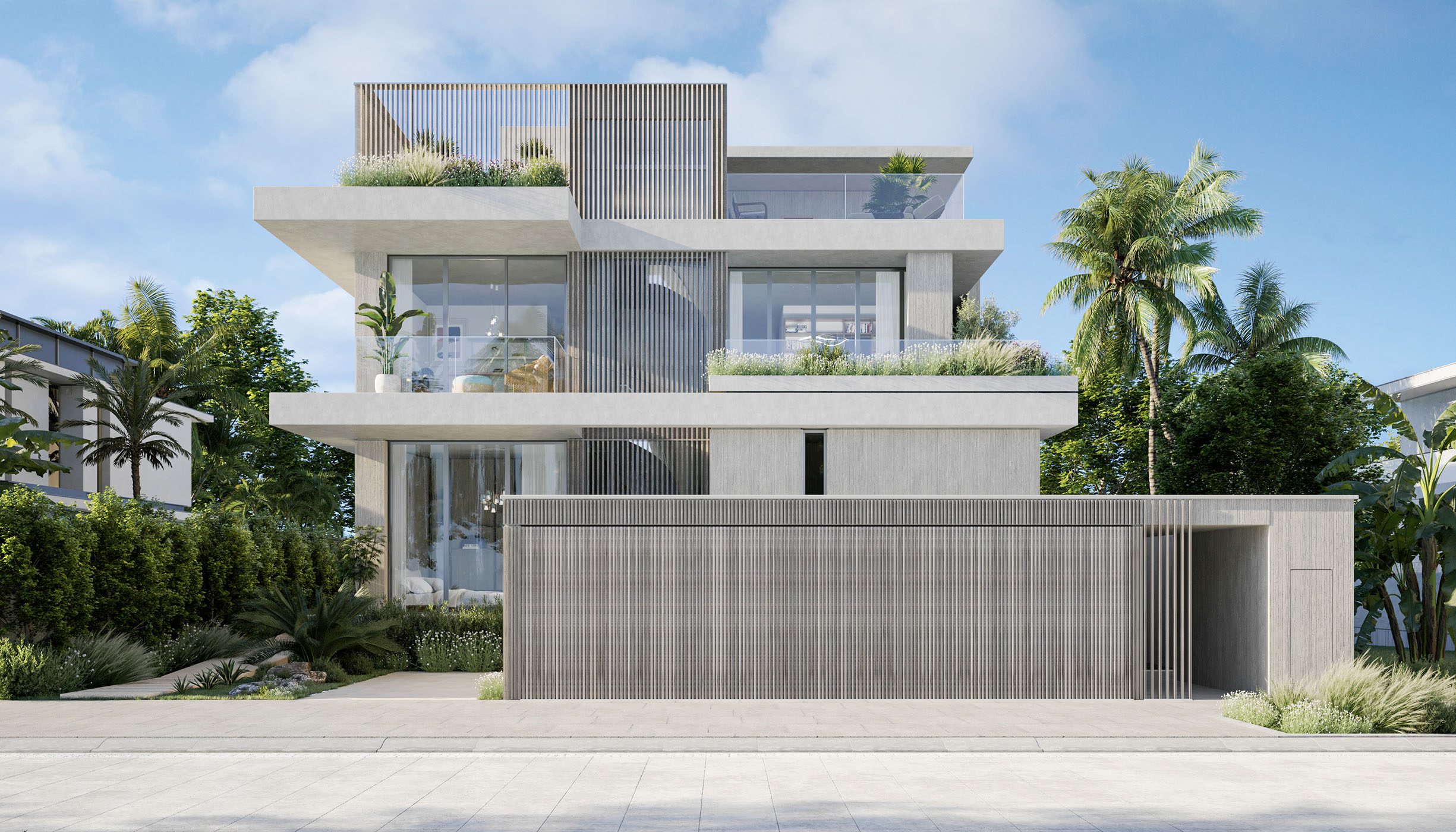Property prices in Dubai: A comprehensive overview for buyers
In recent decades, Dubai has developed into an international property market that is attractive to both investors and buyers. But how are prices developing in Dubai’s dynamic market? What should buyers know about current trends and the factors influencing prices?
This guide is designed to help our clients better understand the Dubai property market and make informed decisions.
How are property prices developing in Dubai?
Dubai has experienced an interesting price trend in recent years. The market boomed in the early 2000s before being slowed by economic uncertainty and overbuilding in 2008 and again in 2014. However, Dubai has since stabilised and is increasingly focusing on sustainable growth and regulated construction projects to meet demand with a controlled supply.
Since 2020, property prices in Dubai have risen significantly again. The pandemic has triggered a wave of demand, particularly for large villas, flats and high-end luxury flats. The result is a strong market with growing demand and stable to slightly rising prices in popular locations.
What influences property prices in Dubai?
Various factors play a role when it comes to pricing in the Dubai property market:
- Supply and demand: The most important factor for property prices is the relationship between supply and demand. When the supply of high-quality property is scarce and demand is high, prices rise. This is particularly true for popular areas such as Palm Jumeirah, Dubai Marina and Downtown Dubai.
- Economic stability and growth: Dubai’s economy is diversified and is based on sectors such as tourism, trade, property and technology. This economic diversity contributes to the stability of the property market and has a positive effect on price development.
- Regulation and market transparency: The Dubai government has introduced numerous measures to regulate the property market and make it transparent. The Dubai Land Department (DLD) and the Real Estate Regulatory Authority (RERA) set standards and rules that strengthen investor confidence and promote price stability.
- Geographical location: Dubai is strategically located between Europe, Asia and Africa, attracting an international clientele who invest here for business or pleasure. This demand is driving up prices, particularly in central and beachside areas.
- Financing conditions: Low interest rates make mortgage financing more attractive and increase the demand for property for sale, which in turn pushes up prices. In addition, many property developers in Dubai offer attractive payment plans for off-plan properties, which also facilitates access for first-time buyers.
- Exclusivity and luxury: The luxury market in Dubai is a key price driver. Popular luxury properties in areas such as Palm Jumeirah or in villas in Downtown Dubai command high prices as they offer comfort and prestige.
Price trends by location: the best neighbourhoods and their developments
There are various residential areas in Dubai that are characterised by different price categories and demand intensities. Here is an overview of the most important areas and their price trends:
- Downtown Dubai: Downtown Dubai, home to the Burj Khalifa and Dubai Mall, is one of the most desirable and exclusive places to live in Dubai. Property prices here are high, both for flats and luxury penthouses, and demand remains strong.
- Dubai Marina: Dubai Marina attracts a young and international crowd and is known for its modern high-rise buildings and proximity to the water. Property prices here are stable to slightly rising, especially for flats overlooking the marina.
- Palm Jumeirah: This iconic man-made island offers some of the most luxurious villas and flats in Dubai. Property prices on Palm Jumeirah are high, reflecting the exclusive location and access to beach and leisure facilities.
- Jumeirah Village Circle (JVC): This area offers more affordable options and is becoming increasingly popular. Prices here are lower than in the central neighbourhoods, but demand and therefore prices are rising steadily.
- Business Bay: Business Bay has established itself as a central business and residential district and offers modern flats and office space. Prices here are in the mid to upper segment and demand is growing, especially among commuters.
Long-term forecasts and developments
Dubai is known for its forward-looking urban planning and innovative construction projects. The introduction of the Dubai Urban Master Plan 2040 aims to transform the city into a sustainable and people-friendly metropolis, which will have a positive impact on the property market. The city is increasingly focussing on high-quality, sustainable residential projects, which should further increase demand and property values in the coming years.
Another advantage of the property market in Dubai is the ongoing investment in infrastructure and transport. New metro lines, airport expansions and public facilities are improving the quality of life and making various areas more attractive to buyers and investors.
Off-plan property: a popular investment opportunity
In Dubai, off-plan properties, i.e. properties that are still under construction, offer an attractive investment opportunity. Many developers offer flexible payment plans and lower prices to make it easier to get started. Once completed, such a property can increase in value, allowing for potentially high returns. Nevertheless, buyers should check carefully whether the developer is trustworthy and whether the project meets their own requirements when buying off-plan.
What does this mean for buyers and investors?
Property prices in Dubai are showing a stable and slightly rising trend, especially in high-end residential locations. Here are some tips that buyers and investors should consider:
- Conduct market analysis: Before investing, it is advisable to carefully analyse the market and price trends. Certain areas such as Palm Jumeirah and Dubai Marina offer high prices but also stable returns and appreciation.
- Choose location: Choose a location that suits your investment objectives. Luxury properties in exclusive locations can offer high rental income and long-term capital appreciation, while up-and-coming areas often offer lower entry prices and higher rental yields.
- Financing and budget: Check financing options and calculate your budget carefully. Many banks in Dubai offer attractive mortgage options for foreigners, and property developers often offer payment plans for off-plan projects.
- Long-term perspective: The Dubai property market can be subject to price fluctuations, but the long-term outlook is positive. An investment in Dubai should therefore be made with a long-term time horizon in order to realise the full potential for value appreciation.
Conclusion: Opportunities and possibilities in the Dubai property market
Dubai is an international property market with great potential for investors. The combination of economic stability, high demand and controlled supply means that prices remain stable or even increase. Whether you are looking for a luxury villa in Palm Jumeirah, a flat in Dubai Marina or an off-plan property in Business Bay, the market offers interesting options for various investment strategies.
With the right market analysis, choice of location and a clear investment objective, buyers and investors can benefit from the positive developments in the Dubai property market and achieve attractive returns.





